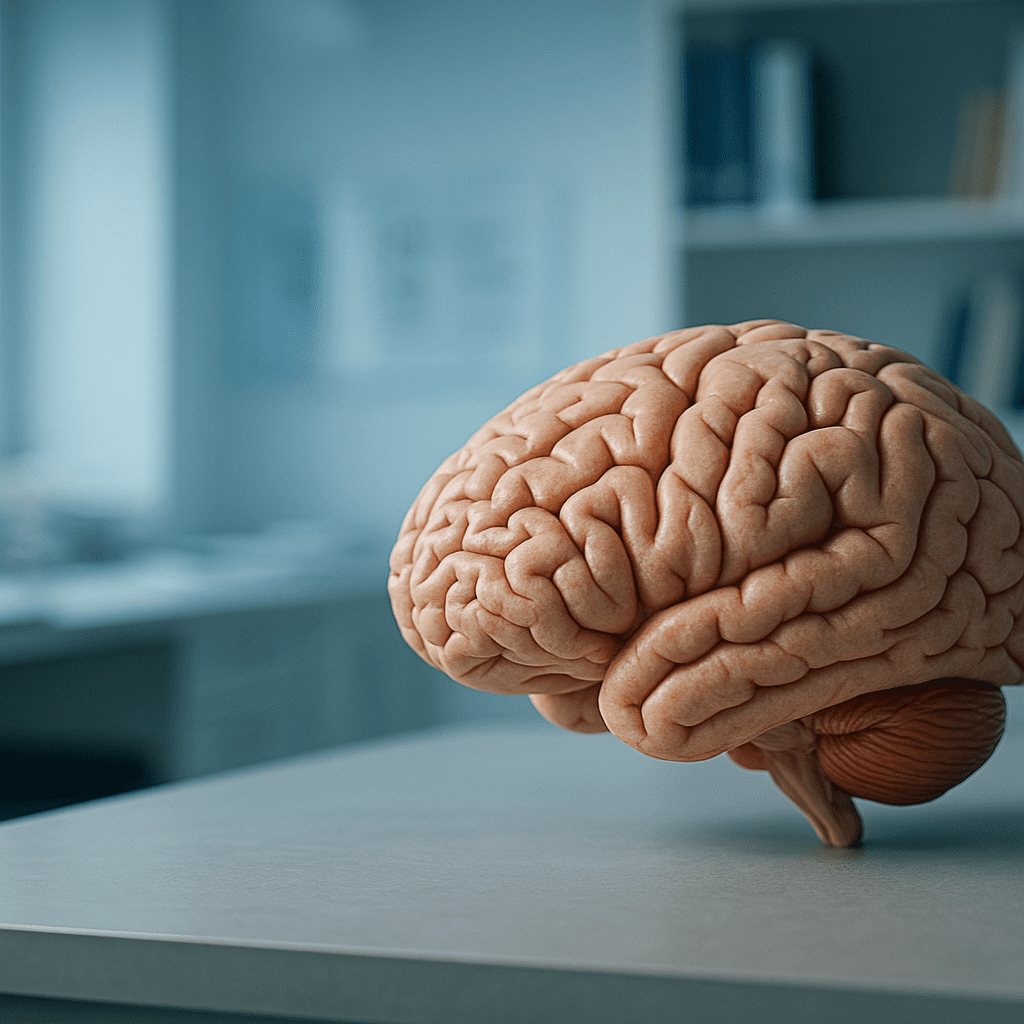The modern world is saturated with distractions. With every ping of a smartphone, every social media scroll, and every dopamine-driven digital interaction, our ability to focus and sustain attention erodes a little further. For many, the question has become deeply personal: why is my attention span so short? The answer lies at the intersection of neuroscience, behavior, lifestyle, and environment. And the good news is that attention span is not a fixed trait. Just as it can be shortened, it can also be rebuilt.
You may also like: How to Improve Focus and Concentration: Proven Techniques for Boosting Mental Clarity and Productivity
The Decline of Attention in the Digital Age
In the digital era, we are perpetually engaged in rapid information consumption. Studies from neuroscience and psychology suggest that our brains are struggling to adapt to this hyperstimulating environment. The frequent switching between apps, tasks, and platforms trains the brain to prefer novelty over depth. When we ask, “Why do I have a short attention span?”, we are really asking how our brains have been rewired by the environments we inhabit.
Research indicates that the average human attention span has been steadily declining over the past two decades. While comparisons to the attention span of a goldfish are overstated, they serve to illustrate a growing problem. A low concentration span is not merely a matter of personal failing but reflects broader societal trends. When our daily routines are fragmented by constant notifications and rapid content consumption, maintaining focus on a single task becomes increasingly difficult.
Neurological Foundations of Attention
Attention is not a single system but rather a network of neural pathways involving several key brain regions. The prefrontal cortex, responsible for executive function and decision-making, plays a central role in managing attention. Meanwhile, the parietal lobes help direct attention to specific stimuli, and the anterior cingulate cortex monitors performance and helps resolve conflicts when we are distracted. These regions interact through a complex interplay of neurotransmitters, particularly dopamine and norepinephrine.
When the question arises—how to fix short attention span—we must begin by understanding these systems. A disrupted dopamine system, often associated with reward and motivation, can lead to a bad attention span. This is frequently observed in individuals with attention deficit disorders, but even those without a clinical diagnosis may experience impaired concentration due to lifestyle-related dopamine dysregulation. Poor concentration span, then, may be the result of repeated overstimulation leading to desensitization of these reward circuits.

The Impact of Multitasking on Brain Function
Multitasking is often perceived as a productivity booster, but neuroscience tells a different story. Engaging in multiple tasks simultaneously reduces cognitive performance and increases mental fatigue. Studies using functional MRI imaging show that task-switching depletes glucose in the prefrontal cortex more rapidly, impairing our ability to focus over time. If you feel like you have a small attention span, it may be due to the chronic mental depletion caused by trying to juggle too many inputs at once.
Contrary to popular belief, the brain cannot truly multitask. It rapidly switches between tasks, which creates the illusion of multitasking. However, this constant shifting taxes our attentional systems and reduces the ability to enter deep, sustained focus. For those wondering how to increase attention span, reducing multitasking is a crucial first step. Establishing boundaries around digital device use and creating single-task work environments can help retrain the brain toward sustained concentration.
Stress, Anxiety, and Cognitive Overload
Emotional and psychological stress is another major contributor to poor attention span. When the brain is in a heightened state of alert—whether due to anxiety, stress, or external pressure—resources are diverted away from the prefrontal cortex. This results in a diminished capacity for rational thought, planning, and focus. Low span of attention is often reported by individuals under chronic stress, particularly those managing work-life imbalances, caregiving responsibilities, or financial uncertainty.
Cortisol, the body’s primary stress hormone, interferes with synaptic communication in the brain. Over time, chronic stress can reduce gray matter volume in the prefrontal cortex, further contributing to attention difficulties. Addressing this underlying physiological stress is a key component of how to get a better attention span. Stress-reducing techniques such as mindfulness meditation, breathwork, and regular physical exercise can enhance cognitive control and reduce the emotional noise that competes for our attention.
Nutritional and Lifestyle Factors Affecting Focus
While the connection between nutrition and attention span is often overlooked, it plays a significant role. The brain is metabolically expensive, consuming up to 20% of the body’s energy. When it is deprived of essential nutrients—especially B vitamins, omega-3 fatty acids, and antioxidants—cognitive performance suffers. A poor concentration span may arise from nutrient deficiencies or imbalanced diets that lack brain-healthy compounds.
Inflammatory diets high in refined sugars, processed foods, and trans fats are associated with impaired cognitive function. Conversely, diets rich in whole foods, particularly those from the Mediterranean or MIND diet patterns, have been linked to enhanced focus and reduced age-related cognitive decline. For those seeking how to fix attention span naturally, the first step may be to examine what’s on their plate. Staying hydrated and avoiding excessive caffeine, especially in the afternoon, can also support better cognitive functioning.
Sleep and the Restoration of Attention
Sleep is a cornerstone of mental clarity. Without adequate rest, the brain cannot perform its vital housekeeping functions, including memory consolidation and synaptic pruning. A consistent lack of sleep disrupts attention networks and reduces overall cognitive efficiency. If you’re dealing with a short concentration span, evaluating your sleep hygiene may be more important than you think.
The sleep-wake cycle, regulated by the circadian rhythm, is intricately tied to attention. Irregular sleep patterns, sleep apnea, or frequent interruptions can degrade the quality of rest, leading to poor daytime focus. Strategies such as maintaining a regular sleep schedule, minimizing blue light exposure before bed, and creating a relaxing bedtime routine can help lengthen attention span by improving the brain’s ability to reset and recover overnight.
The Role of Mindfulness and Meditation
Mindfulness is not just a trendy buzzword—it is a neuroscience-backed tool for regaining control over attention. Practicing mindfulness meditation has been shown to strengthen the brain’s default mode network, enhance connectivity between attention-regulating regions, and increase gray matter density in the prefrontal cortex. Individuals who meditate regularly often report that they have learned how to regain attention span naturally, without pharmacological interventions.
Mindfulness encourages present-moment awareness, reducing the mind’s tendency to wander. When practiced consistently, it retrains the brain to focus on one task at a time, even amidst distractions. For people struggling with a low concentration span or small attention span, cultivating a mindfulness habit can bring noticeable improvements. Techniques such as breath-focused meditation, body scans, and mindful walking are simple but powerful ways to rebuild attention capacity over time.

Digital Detox and the Rewiring of Neural Pathways
Excessive screen time is one of the most common contributors to bad attention span in the modern era. Digital devices, particularly smartphones and social media platforms, are engineered to hijack our attention with variable rewards and infinite scrolling. Each swipe delivers a hit of dopamine, reinforcing the habit loop and making it more difficult to engage in focused, intentional work.
A digital detox—a deliberate period of disconnection from screens—can help interrupt these patterns. When we remove the constant influx of stimuli, the brain begins to recalibrate its reward systems. Those who have successfully completed digital detoxes often describe the experience as transformative. They not only fix short attention span but also experience greater emotional stability and mental clarity. Gradually reducing screen time, turning off non-essential notifications, and scheduling regular offline breaks can help restore natural attentional rhythms.
Cognitive Training and Neuroplasticity
Neuroplasticity—the brain’s ability to reorganize itself by forming new neural connections—is a powerful ally in the quest to improve attention. Cognitive training exercises that target memory, processing speed, and problem-solving can stimulate neural growth and strengthen attention networks. These exercises often involve focused repetition and incremental challenges, which push the brain to stay engaged.
Popular brain-training platforms, when used consistently, can provide structured ways to enhance focus. However, not all programs are equally effective, and the transfer of benefits to real-world tasks remains a subject of scientific scrutiny. Nonetheless, incorporating challenging mental activities—such as learning a new language, playing a musical instrument, or solving complex puzzles—can be practical strategies for those wondering how to improve attention span in a meaningful and lasting way.
Movement, Exercise, and Attention Regulation
Physical activity is not only beneficial for cardiovascular health; it is also a key modulator of cognitive performance. Aerobic exercise increases blood flow to the brain, supports neurogenesis, and stimulates the release of brain-derived neurotrophic factor (BDNF), a protein that fosters the growth of new neurons. These biological processes contribute to improved attention and executive function.
Regular movement—whether through walking, dancing, strength training, or sports—has been shown to reduce symptoms of inattentiveness, particularly in individuals with ADHD. It also enhances mood, reduces anxiety, and supports better sleep—all of which contribute to better focus. Integrating movement into daily life can serve as a natural and accessible answer to how to gain your attention span back. Even short bursts of physical activity throughout the day can help refresh the mind and support sustained mental effort.
Expanding Your Environment to Support Focus
Environmental design plays an often underestimated role in attention regulation. Our surroundings can either reinforce distraction or promote focus, depending on how they are structured. Natural light, ergonomic furniture, and a clutter-free workspace have all been associated with improved cognitive performance and reduced mental fatigue. When seeking to understand how to get a better attention span, adjusting your physical environment is a practical and effective strategy.
Introducing elements of biophilic design—such as indoor plants, natural materials, and views of greenery—can enhance attention restoration. Research in environmental psychology has shown that exposure to nature, even through images or short walks, can significantly reduce mental fatigue and improve attention. These small environmental tweaks accumulate into a larger impact, especially when combined with behavioral changes aimed at reducing overstimulation.
Social dynamics also influence our ability to concentrate. Open office layouts, frequent interruptions, and noise pollution can significantly impair focus. Creating designated quiet zones or using noise-canceling headphones can make a difference. Whether at work or at home, aligning your environment with your cognitive needs can be a foundational step in learning how to lengthen attention span.
Cultivating Patience and the Power of Slow Thinking
In an age that prioritizes speed and efficiency, slowness is often undervalued. Yet, slow thinking—associated with deliberate, reflective, and deep mental processing—is crucial for sustained attention. When we give ourselves permission to engage slowly and thoughtfully with material, we strengthen the neural circuits responsible for focused cognition. Those with a poor attention span may find that their difficulties stem in part from pressure to respond quickly rather than effectively.
Cultivating patience means resisting the urge to switch tasks at the first sign of boredom. It means tolerating the discomfort that comes with deep work and allowing the brain time to settle into the task at hand. This ability to persist through initial mental resistance is central to how to fix attention span in a lasting way. Over time, slow thinking becomes a skill that opens the door to more meaningful work, richer learning, and better problem-solving.
Engaging in contemplative practices such as journaling, deep reading, or extended conversations can help reinforce this mindset. These activities counterbalance the instant gratification loop of digital interactions and support the cultivation of longer attention spans. As with any skill, slow thinking requires practice—but its rewards are transformative, especially for those with a bad attention span looking to restore cognitive endurance.
Personal Stories and Strategies: How I Got My Attention Span Back
The journey to restoring attention is deeply personal. Many individuals who once struggled with poor attention span share similar turning points: realizing that their lifestyle was eroding their focus and deciding to take action. The phrase “how I got my attention span back” is often accompanied by stories of experimentation, setbacks, and gradual progress. These narratives offer not only hope but also practical insights for others on a similar path.
Common strategies reported by those who successfully regained their focus include reducing social media usage, adopting structured routines, practicing daily meditation, improving nutrition, and prioritizing sleep. Importantly, most describe the process as nonlinear—progress often came in waves, not in a straight line. Yet, over time, with persistence and intention, they found ways to lengthen attention span and sustain concentration during tasks that once seemed insurmountable.
Practical Steps for Rebuilding Your Attention Span
For those asking how to fix attention span in practical terms, the process begins with awareness. Identifying the specific triggers that disrupt focus—be it digital distractions, sleep deprivation, or stress—is the first step. From there, small, consistent changes can yield significant improvements. For example, implementing the Pomodoro Technique—working in 25-minute focused intervals with short breaks—can help train the brain to tolerate longer periods of deep work.
Journaling can also provide insights into attention patterns. Tracking when focus is strongest during the day and adjusting tasks accordingly can improve productivity. Likewise, creating a dedicated workspace free from distractions sends a powerful signal to the brain: this is a place for focus. These habits, when practiced consistently, can offer lasting answers to how to get a better attention span, even in an age of information overload.

Frequently Asked Questions (FAQ): Attention Span and Cognitive Focus
1. Can social behavior and digital etiquette affect why my attention span is so short?
Absolutely. The social norms we adopt in our daily digital interactions have a powerful effect on attention. If you constantly feel pressure to respond immediately to every message or notification, this trains your brain to prioritize short bursts of engagement over sustained focus. Over time, this behavioral conditioning creates a feedback loop that reduces your cognitive resilience. If you’ve been wondering why your attention span is so short, consider the influence of peer habits and social expectations that subtly reward distraction. Breaking this cycle may involve setting boundaries with digital communication and reclaiming uninterrupted periods of cognitive rest.
2. What role does neurodiversity play in how to increase attention span naturally?
Neurodiversity—including conditions like ADHD, autism spectrum disorders, and dyslexia—can significantly influence how individuals process and maintain attention. For some, traditional strategies for how to increase attention span may be less effective or require customization. Rather than focusing solely on control or discipline, individuals may benefit more from rhythmic routines, sensory integration practices, or task-based motivation systems. Understanding neurodiversity allows us to move beyond one-size-fits-all advice and opens up personalized methods for how to fix attention span that respect each person’s unique cognitive wiring. Embracing this perspective helps reduce stigma and fosters more sustainable solutions.
3. How can physical posture and ergonomics impact a short concentration span?
Your body posture directly impacts your mental state, and slouching or working in physically uncomfortable positions can shorten your cognitive endurance. When you work in poorly aligned positions, blood flow to the brain is compromised and muscular fatigue sets in sooner, contributing to a short concentration span. Standing desks, lumbar support, and frequent posture checks can help improve attentional stamina. Movement-based cues like changing positions or stretching every 30 minutes can recalibrate attention. For individuals managing a poor attention span, enhancing physical comfort is often an overlooked but vital step.
4. Does auditory stimulation help or hinder someone with a small attention span?
It depends on the individual and the task. For some people, background music or ambient noise can help mask distracting sounds and stabilize their focus, effectively supporting how to improve attention span. However, others find that music—especially with lyrics—competes for cognitive bandwidth. Using tools like binaural beats, nature sounds, or pink noise may help those with a small attention span remain engaged without overwhelming their auditory processing systems. Experimenting with different soundscapes during various cognitive tasks can provide deeper insight into what truly enhances or detracts from focus.
5. What can wearable technology offer in terms of how to gain your attention span back?
Emerging wearable devices such as EEG headbands and heart rate variability trackers offer real-time biofeedback on focus and stress levels. These tools can alert users to moments of distraction, enabling interventions before attention fully lapses. Some wearables even guide users through short breathing exercises or mindfulness drills that support how to gain your attention span back in the moment. While they aren’t a magic solution, they provide objective data that can help build self-awareness and guide habit change. When used mindfully, wearables can transform attention training into a data-informed and empowering process.
6. How do hormonal fluctuations affect people struggling with low concentration span?
Hormonal shifts, especially those related to menstrual cycles, menopause, thyroid function, and cortisol rhythms, can significantly affect mental clarity. For many, a low concentration span may worsen during periods of hormonal imbalance due to disrupted sleep, emotional variability, or metabolic changes. Addressing these fluctuations through medical consultation, nutritional support, or adaptogenic herbs can enhance hormonal stability and indirectly boost focus. This is especially critical for women navigating perimenopause or postnatal shifts, as these changes often go underrecognized. Understanding these biological variables is essential for anyone trying to get a better attention span through holistic means.
7. Why do I have a short attention span even when I’m interested in the task?
This is a common and frustrating experience. Even when you’re intrinsically motivated, external factors like sleep deprivation, overstimulation, or latent anxiety can limit your focus. Sometimes, the issue isn’t lack of interest but lack of cognitive fuel—meaning your brain lacks the resources to stay locked in. That’s why strategies like nutritional support, hydration, and scheduled rest breaks are vital in addressing why you have a short attention span. Consider also how environmental triggers—like cluttered spaces or digital interruptions—might be undermining your natural engagement.
8. Can storytelling techniques help fix a poor concentration span in adults?
Yes, storytelling is a powerful cognitive tool that can engage multiple parts of the brain simultaneously, increasing emotional investment and memory retention. Adults with a poor concentration span often benefit from narrative structures because they provide context, meaning, and continuity, which enhance attentional engagement. Whether through audiobooks, documentaries, or visual storytelling, using narrative frameworks can help anchor focus. In educational or professional settings, converting information into a compelling story arc may enhance your ability to stay engaged. Storytelling aligns with how the human brain evolved to process information—sequentially and with emotional relevance—making it an effective tool for how to fix attention span.
9. What advanced techniques can help someone wondering how to lengthen attention span for high-performance work?
For high-performance professionals, biohacking tools like neurofeedback, light therapy, and nootropics (cognitive enhancers) are gaining traction. These techniques can modulate brain wave activity, support circadian alignment, or enhance neurotransmitter balance—all of which are relevant for how to lengthen attention span. Elite athletes and executives often use structured focus blocks, strategic caffeine dosing, and recovery windows to build sustained attention over long periods. It’s crucial, however, to combine these tools with foundational practices like sleep, nutrition, and mental hygiene. Without addressing the basics, advanced methods won’t yield sustainable results, even if they temporarily reduce a low span of attention.
10. What mindset shift helped most people say, “This is how I got my attention span back”?
One of the most transformative shifts is moving from a performance-based mindset to a process-oriented mindset. Instead of constantly measuring output, individuals begin to value consistency, self-awareness, and recovery. This shift fosters patience, reduces guilt during off-days, and supports emotional regulation—all vital components of how to regain attention span over the long term. Many people who say, “This is how I got my attention span back,” highlight the importance of self-compassion and gradual habit-building rather than quick fixes. Recognizing that attention is dynamic and responsive to lifestyle cues can reduce frustration and reinforce a healthier cognitive rhythm.
Conclusion Reflecting on Why Your Attention Span Is So Short—and What You Can Do About It
Understanding why your attention span is so short is not about assigning blame. It’s about recognizing the powerful influences—both internal and external—that shape how our brains operate in a fast-paced world. From dopamine-driven digital habits to undernourished brains, from chronic stress to sleep debt, the causes of a short concentration span are multifaceted. But so are the solutions.
By leveraging insights from neuroscience, psychology, nutrition, and mindfulness, you can begin to reverse the effects of attention erosion. Whether you’re dealing with a low span of attention, wondering how to regain attention span, or simply looking for ways to thrive in a distracted world, the journey starts with intentionality. A better attention span is not just a cognitive advantage—it’s a gateway to deeper work, richer experiences, and a more present life. And that, above all, is worth the effort.
mental fatigue and focus, cognitive performance tips, attention and brain health, executive function improvement, digital distraction recovery, dopamine and attention, mindfulness for focus, neuroplasticity and learning, brain training for adults, focus boosting foods, healthy brain habits, managing digital overload, focus and productivity, meditation and concentration, circadian rhythm and cognition, brain fog solutions, lifestyle changes for attention, stress impact on cognition, cognitive wellness strategies, enhancing mental clarity
Further Reading:
Why Everyone’s Worried About Their Attention Span—and How to Improve Yours
Speaking of Psychology: Why our attention spans are shrinking, with Gloria Mark, PhD
Pay attention to concentration Here are reasons
Disclaimer
The information contained in this article is provided for general informational purposes only and is not intended to serve as medical, legal, or professional advice. While Health11News strives to present accurate, up-to-date, and reliable content, no warranty or guarantee, expressed or implied, is made regarding the completeness, accuracy, or adequacy of the information provided. Readers are strongly advised to seek the guidance of a qualified healthcare provider or other relevant professionals before acting on any information contained in this article. Health11News, its authors, editors, and contributors expressly disclaim any liability for any damages, losses, or consequences arising directly or indirectly from the use, interpretation, or reliance on any information presented herein. The views and opinions expressed in this article are those of the author(s) and do not necessarily reflect the official policies or positions of Health11News.


